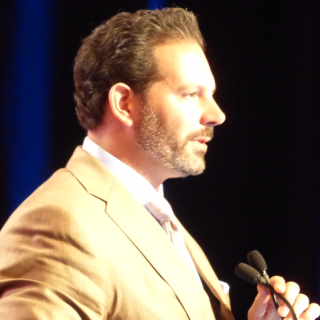
I do some of my best thinking while exercising.
A few years ago, I was swimming laps in the still-dark early morning.
Swimming is one of my favorite activities. But in a pool it gets boring staring at the bottom, so my mind often wanders off to tackle difficult problems.
That morning, like many of you, I was wrestling with the question of how to turn my passion into a successful side gig in consulting.
In addition to my day job, I volunteered with the local startup community by mentoring and coaching founders and CEOs. I discovered I loved helping young companies think through solving big problems in healthcare, and I was inspired by coaching founders who were building amazing teams.
It struck me that what I really wanted professionally was to turn my volunteer side gig of mentoring and coaching into a full time consulting opportunity. But I wasn’t sure where to start.
Fast-forward a few years (and a lot of trial and error) later, and I am grateful to say I’ve built a successful consulting practice that has exceeded my initial hopes and expectations, for both personal fulfillment and financial success.
I believe everyone is capable of building the life they dream. Here are a few key lessons I learned while building my consulting business, in case you’re looking to do the same:
1. Acknowledge your expertise.
You are already an expert in healthcare. You have a medical degree; you have been through residency; you care for patients, and that gives you valuable expertise that can’t be found elsewhere. You may also have experience leading a quality committee, being a medical director, or helping to run your own practice. Consulting is about recognizing your own areas of expertise and how those can be applied in the marketplace. One good rule of thumb is to look at where you spend most of your time. That is an area where you have deep expertise.
In my case I had experience building large physician networks as a Chief Medical Officer, department Chair, and medical director of a practice. I had also developed an interest in healthcare technology and innovation. Bringing those two areas together meant I had a unique skill set that could be applied to help healthcare organizations build that capability.
2. Start with who you know.
As an expert, you are already recognized by your peers, hospital, or professional societies as a valuable member of those teams. If you want to add consulting to your professional skills, start with people who you know. Actively ask for opportunities to get involved. Sure, going from physician one day to consultant the next may be a stretch, so begin by offering to help with a specific project you know is underway. If it’s at your current hospital, think about how you could help support physician engagement, quality, utilization reviews, etc. Your current employer is often a good place to start, because they already know and trust you.
Alternatively, if you are leaving to pursue other opportunities, your current employer may want to keep you on part-time to help out. When I was leaving a Chief Medical Officer position for a healthcare technology company, the practice leadership asked me to consult and help during the transition. It was a great way to take those first steps into consulting, by focusing on specific projects, managing a timeline, and developing deliverables that provided value for the company.
3. Build your network.
Networking. The term gets thrown around all the time. It really means, “make friends.” You start with who you know and then expand out beyond that. Use Facebook groups and LinkedIn to find like-minded individuals who can help you with introductions. Attend conferences in your target market. Sign up for newsletters that discuss industry trends. Figure out how you can help other people, and begin to build genuine relationships.
Two societies have been hugely important in my own professional development.I got involved in HIMSS years ago as a way to expand my network of healthcare technologists. I regularly attend the annual conference as well as am involved and speak at a local level. ACEP has always been my specialty society and many of my friends and clients attend its conferences. For me, it’s a great way to network and build potential contacts. And remember, networking means making friends. It doesn’t mean that they need your services today. Don’t try and sell people things they don’t need or want. Real relationships mean they will see your value over time and want to work with you.
4. Don’t focus on the pricetag.
A former physician CEO that I worked for years ago told me that administrative time is almost always paid less than clinical time. That is particularly true when you’re first starting out.
This following note is key: When I wanted to expand my consulting practice, I volunteered my time. I started as a mentor with a technology incubator that was building its healthcare technology practice. In essence, I traded my expertise in healthcare to learn about the startup process. I built on the skills I had already developed and eventually those relationships turned into paying engagements. Ultimately, what you charge will be determined by your skill set and what the market will pay. Several conversations with clients will give you an idea of the market. Be flexible and realize the longer-term relationship is worth making an investment on the front end.
5. Company formation.
You need to formally organize your own company in order to grow. I’m not here to give legal advice — seek the help of a lawyer your trust. In my experience, you can start as a sole proprietor and incorporate to an LLC or S Corp later in the process. Once you have enough business to justify the cost of incorporation, you can do that to mitigate risk and contract with larger organizations. Some large healthcare organizations won’t contract with individuals, and having a corporation allows you to win that business.
6. Insurance.
Unless you are consulting clinically, you don’t need medical malpractice for your consulting work. If you still practice clinically, you need medical malpractice for that work. Having general liability and errors and omissions insurance is a good move for any consulting practice. A general insurance broker can get you quotes for both.
There is a lot more to creating a successful practice but the bullet points above can help you get started. Most importantly, build your network of mentors and collaborators who can help you learn to be more successful. I will refer work to a colleague if it’s not my area of expertise and am always looking for collaborators to help support their business.
From my early morning swim in the pool and the decision to start my consulting practice to my work with the incredible clients I have today, it has been a great experience and one where I have learned an incredible amount.
This post originally appeared on physiciansidegigs.com






